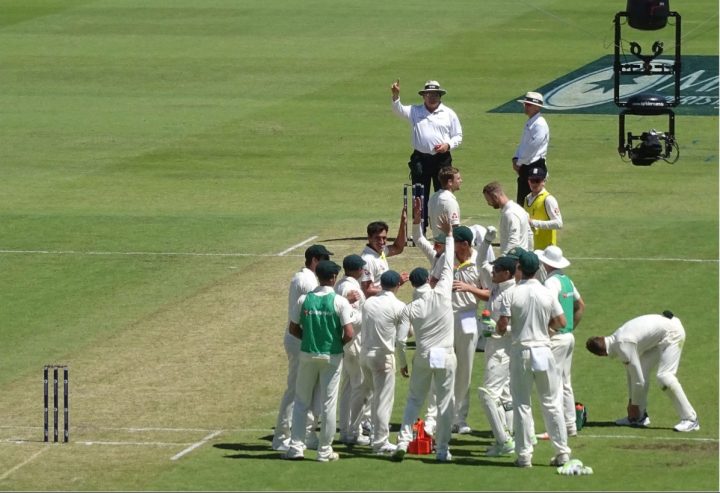The fallout from Saturday’s fiasco will run and run. We’ve already described how the second coming of Moores is akin to a comeback for Steve McLaren, and suggested a theory behind the darker reasons for this bizarre re-appointment. Later we need to scrutinise exactly what Paul Downton told us – and didn’t tell us – about why he fired Kevin Pietersen. But for now we’re looking at the new Moores reign from a purely cricketing perspective. Earlier, Neil Harris eloquently outlined the arguments in favour. But I remain distinctly under-whelmed.
Over the weekend we heard a lot of guff about the dignity Peter Moores showed after being fired in 2009; about the high regard in which he’s held by other coaches; and about the demand for his services as a speaker on leadership skills.
Unfortunately, hardly anyone pointed out something slightly more relevant – that Moores has already done the England job for two years in a previous spell from spring 2007 to January 2009, during which time we lost every single major series. This tells us an awful lot more than his record in county cricket. The results were:
– West Indies (home) – won 3-0.
– India (home) – lost 0-1.
– Sri Lanka (away) – lost 0-1.
– New Zealand (away) – won 2-1.
– New Zealand (home) won 2-0.
– South Africa (home) lost 1-2.
– India (away) lost 0-1
So in overview, we managed to beat a very modest West Indies and New Zealand at home, in the easy May series, and scraped a win on Kiwi soil. Against all the decent sides, we lost.
Until 2007 we hadn’t been defeated in a home series since 2001, and by no-one other than Australia since 1999. But when Peter Moores took over, we lost two in a row. Significantly, our results were getting worse, not better, towards the end of his tenure. The ‘1’ against South Africa in 2008 was the final test of series which had already been lost.
Beyond the bare results, I remember those two years as a time of drift and decay. The team felt inchoate and unfocused, meandering aimlessly. Runs were scarce and the bowling was held together only by Ryan Sidebottom. Monty Panesar withered and regressed.
It didn’t help that Moores alienated and antagonised almost all the senior players in the dressing room, including Michael Vaughan, Andrew Strauss, Matthew Hoggard and Paul Collingwood. He comes across as having been bumptious, ridiculous, and inept.
We need to talk here, briefly, about Kevin. At Saturday’s press conference Moores retorted jokily that “I didn’t fall out with Kevin – he fell out with me!” – which cutely deflected the blame. In that particular environment it was easy for Moores to portray the episode as little more than a KP hissy fit. But what he didn’t mention is how the whole thing started.
As I wrote on Saturday, Pietersen had been asked to privately write up his thoughts on the team’s way forward. Conscious of the side’s declining performance and repeated defeats, Pietersen said that Moores was so inadequate a coach that he could no longer serve under him. Exactly what does that tell you about the confidence Moores inspired and the way he did his job? It’s easy to dismiss the whole debacle as KP histrionics, but just look at the results on-field.
All things considered, Moores’s tenure as Team Director was an almost unmitigated disaster. There’s no point repeatedly stressing his excellent county record (which, er, includes relegations) because the role of co-ordinating an entire international set-up is another challenge entirely. It involves different skills and challenges. Moores tried his best for two years but was found wanting.
Moores’s advocates point to his selection of Matt Prior, Graeme Swann and Stuart Broad. He may indeed take some credit for those choices, but during home series the coach has only a partial say in who gets picked – Geoff Miller, the chair of selectors, was in charge. Moores has also been attributed with the decision to give Anderson and Broad the new ball – but this is not quite true, because the latter was usually the third seamer before 2009. In any event, the captain, not the coach, decides who bowls when.
Then we have the argument that Moores has learned from his mistakes and will do better second time around. This is such an absurd notion that I honestly don’t know where to start. By that logic, you could in any situation reappoint anyone to a role in which they’d previously failed. Any individual might have improved. But why on earth would they be a better option than a rival candidate who hadn’t failed?
The ECB could have chosen anyone, but decided to hire the one person who they know is bad at the job. They hope he’s improved, but they have no idea whether he actually has. Or are we now saying that every coach should be allowed a two-year initial term of messing it up and losing test matches, with impunity, as a rehearsal for a second stab five years later?
The final problem with Peter Moores is that he’s far too similar, and too closely linked, to Andy Flower – who continues to lurk unhealthily over his shoulder. Flower’s modus operandi was very successful for two years, but times have changed and right now the last thing we need is another technocrat. Instead of yet more systems, methodology and management theory, the present circumstances demand a man who can immerse his players in the raw joys and thrills of test cricket – who relies more on instinct than hypothesis, and injects energy and fun.
I appreciate that Moores is a conscientious and hard-working man who only wants the best for Team England. But you could say that about virtually any plausible candidate. His re-appointment not only speaks volumes about the ECB’s arrogance and insularity – it reveals exactly how the last three months have played out in the minds of the Lord’s top brass. After the 2006/07 disaster, English cricket commissioned the wide-ranging Ken Schofield report in an earnest attempt to learn the lessons and re-build. This time, after another and even more traumatic 0-5 whitewash, Paul Downton’s programme for recovery seems to solely comprise the following courses of action:
– Sack the best player.
– Re-appoint the useless captain (and wrap in him cotton wool, as if he’d played twelve tests, not a hundred).
– Promote the failed coach.
– Re-hire another failed coach.
– Tell everyone to stop moaning.
All of which leaves me to say only this: will the last person out of the building please switch off the lights?










[…] second article, by Maxie Allen, on Peter Moores is certainly an interesting piece. I’ve had the pleasure of DM’ing with both (probably, […]